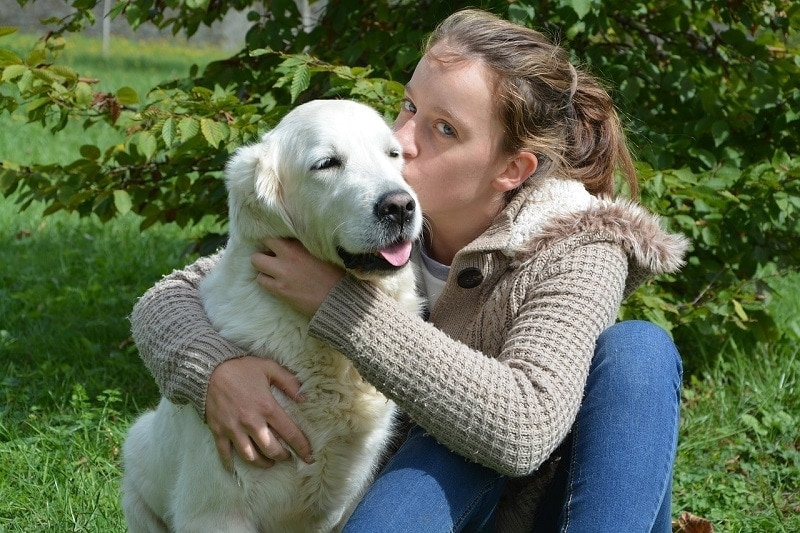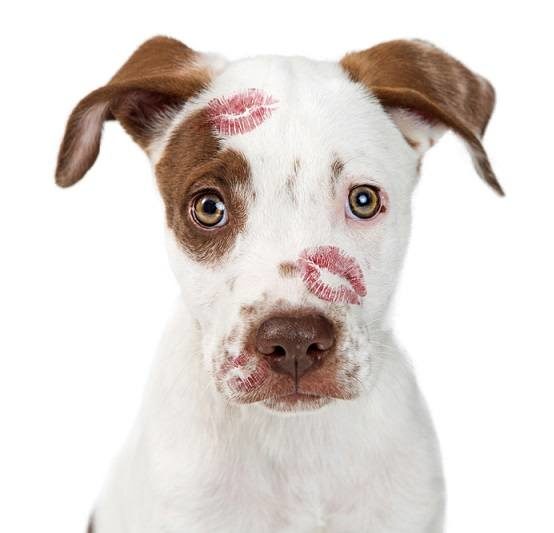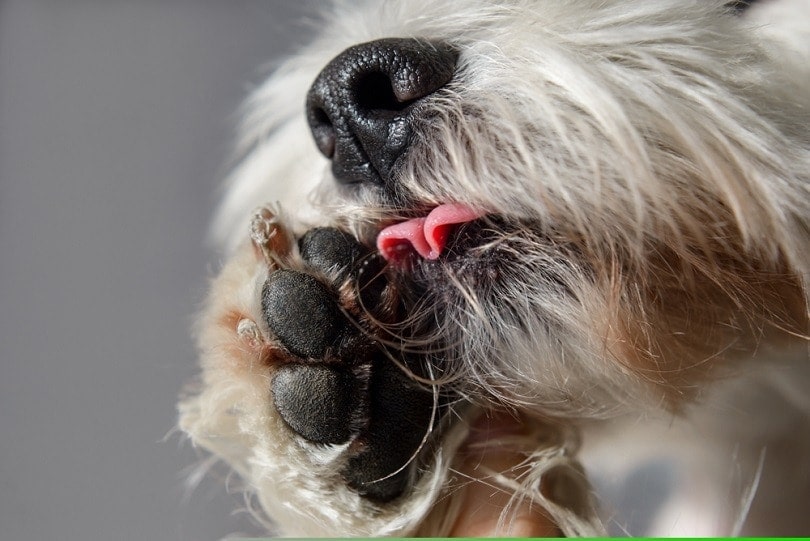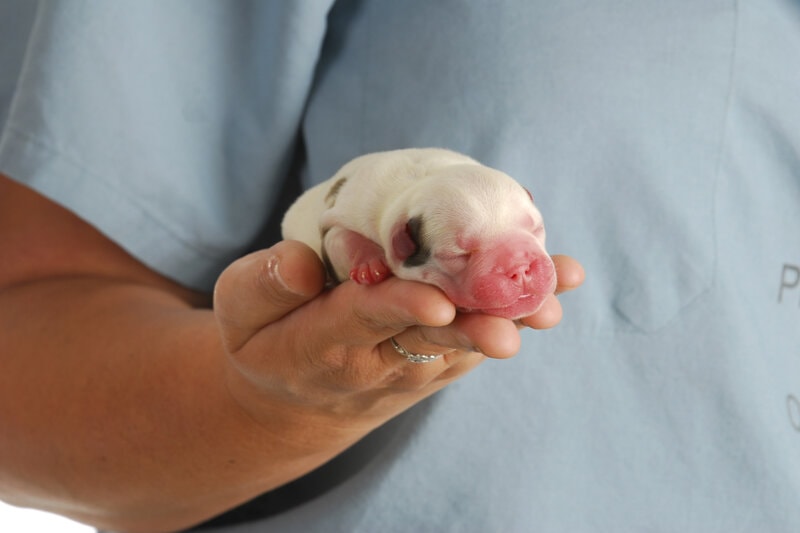Do Dogs Like Kisses? How to Show Affection to Your Pet

Updated on

Both dogs and humans communicate to others in their species using body language. However, for us humans, verbal communication has been our go-to for thousands of years. As time has gone on, we have lost some of our ability to use body language to get across emotions and complex ideas.
On the other hand, dogs still utilize all kinds of subtle signals with varying parts of their bodies to communicate with creatures around them. Even small movements can have significant nuances.
While humans don’t use too much body language, our dogs certainly do. Our body language communicates to them even if we don’t know that we’re doing so.
In this article, we look at the act of giving your dog kisses and determine whether they like them and what you could potentially be telling your dog when you shower them with smooches.
Do Dogs Understand Kisses?
Dogs that know you and feel comfortable around you will likely tolerate kisses. If you typically give kisses while speaking to them softly, petting them, and giving them attention, they are more likely to associate kisses with love.
Dogs will take time to understand what your kisses mean. It can be somewhat intimidating for something as large as a human to come and stick their face in front of a dog’s eyes. Unfortunately, it can be a trigger for a dog, meaning that it can bring out a particularly adverse reaction.
Hugging and kissing a dog can easily be misunderstood, especially with children. Thousands of children get bitten by dogs each year, most of the time with dogs that they feel comfortable with.

Children can be impulsive when it comes to their actions around animals. They often disregard the signals of discomfort or even fear that your dog tries to give them.
Dogs are often punished for these seemingly aggressive behaviors when they are actually being misunderstood and poorly treated. We need to listen to what they are trying to tell us, particularly when it comes to close physical interactions.
Imagine a similar situation happening with another person. If we tried to tell them that we didn’t feel comfortable with a long, drawn-out hug and kisses all over our cheeks, only to find out that they didn’t speak our language, we might try and push them away to get our point across.
Nipping at other dogs is how canines communicate their discomfort with how a dog is playing or getting close to them. However, when they try to do the same with us humans, they could be punished.
All these points are especially poignant when it comes to rescue dogs. Rescue dogs are often misunderstood and need extra training and time to adapt to a loving home. They will likely never act as docile and be as easy to train as a dog from a breeder.
Often, this behavior is because of a hard life, typically at the hands of a previous aggressive owner. Getting too close to them or making specific actions can scare them and cause them to lash out. Remember to take it slow with these dogs, and always be on the lookout for signs of discomfort.
Why Do Dogs Lick?
What might be confusing for us as dog owners is the fact that so many dogs love to lick our faces and the faces of other animals. They do this in the name of exploration. They learn about people and other animals using their scent, sounds, and taste. They might lick your face just for more information.
They may have also learned through previous actions that you enjoy getting these kisses. They are observant and will interpret the action as a way to get your attention in the future. It may become their way of saying, “Hello! Pay attention to me!”
Interestingly, licking can also be a sign of submission. If a dog is anxious, intimidated, or injured, then they might lick to tell you that they don’t pose a threat. They might do it in response to a stranger that leans over and kisses them to show that they feel threatened and scared.
If a stranger does this to your dog, be aware that licking and feeling threatened can lead to a dangerous situation.

How to Tell If Your Dog Likes Kisses
Now that we know that a dog may enjoy or conversely, may feel threatened by kisses and that they lick people for all kinds of reasons, how can you tell how they feel? How do you make sure that they feel comfortable with your actions?
One of the best ways to do this is to pay attention to the rest of their body language. Hugs can be especially threatening, so don’t try to hug and kiss them simultaneously. Learn about the dog before approaching them. Don’t ever try to hug or kiss a dog that doesn’t know you well, and especially don’t let your children do it to new dogs.
Allow the dog to get to know you before approaching them with such forward behavior. If they continue to seem relaxed around you, then you can consider trying to give them kisses. Relaxed positions include them lying on the floor, since it means they feel safe being vulnerable with you.
If a dog bares their teeth or growls, back off. Those are the most obvious tells that a dog doesn’t like you being so close. If the hair on the back of their neck and shoulders starts to raise, then continue to stay away.
Teach your children what respectful behaviors are around both family dogs and strange dogs. It will protect both your child and the dog from scary encounters and unwanted future consequences.
In Summary: Kissing Your Dog
Your dog might seem to love your kisses, and they may have come to accept them as a form of affection. However, this isn’t a natural body language for them, and they need plenty of time to learn that you mean no harm from it.
Give a dog time to warm up to you, and read their body language for signs of love and relaxation, ensuring that they don’t feel tense or intimidated. Remember that we are quite large in their eyes, and some dogs have had traumatic experiences that can make close encounters with humans quite difficult.
Featured Image Credit: JACLOU-DL, Pixabay











